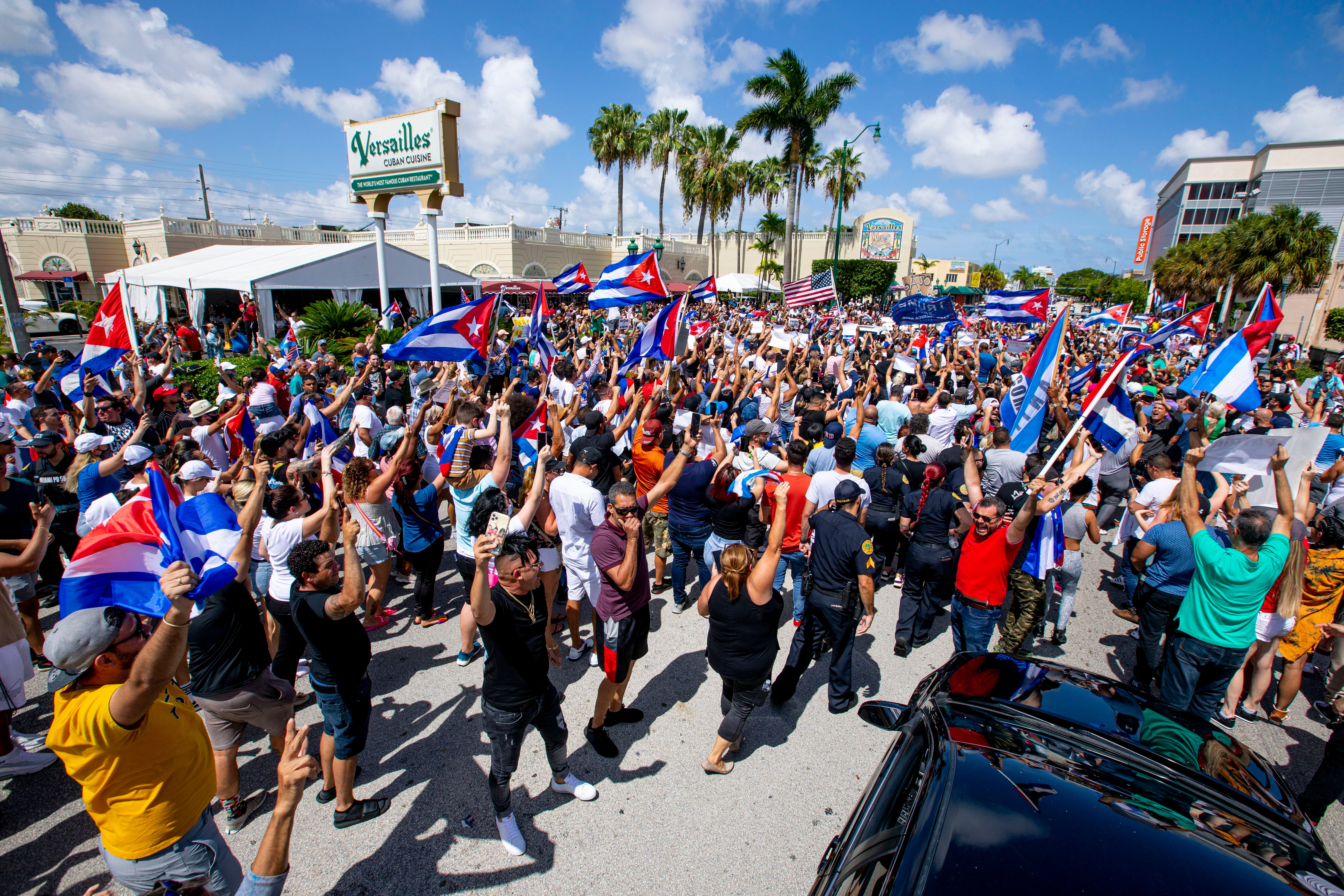How Cuba’s protests are being fuelled by a viral hit song
Protesters raise placards with lyrics of the rap, which has became a ‘symbol of freedom’ for Cubans
A viral hip-hop song in Cuba has become a rallying cry for one of the biggest anti-government protests that the 62-year-old Communist regime has seen in almost three decades.
“No more lies! My people demand freedom. No more doctrines!/Let us no longer shout ‘Homeland or Death’ but ‘Homeland and Life,’” are some of the lines from the song “Patria y Vida” or “homeland and life,” echoing through the streets of Cuban cities.
The song, released a few months ago by a group of exiled Miami-based and Cuban artists, has become the anthem of the anti-government protests, amassing more than six million views on YouTube.
The historic demonstrations by pro-democracy protesters began on Sunday as thousands of Cubans hit the streets to call for an end to the regime amid worsening economic crisis. The residents of the country protested longstanding food shortages, vaccine and medicine scarcity.
The phrase “Country and Life” is juxtaposed with “Patria o Muerte,” meaning “Country or Death” – a slogan of sacrifice that has been ingrained in Cuban culture for decades.
The term was coined by Communist leader Fidel Castro in 1960, following the success of Cuba’s Communist revolution.
The track, released in February, was recorded secretly by the island-based performers Maykel Osorbo and Eliécer “el Funky” Márquez by carefully evading the police. Miami-based superstar rapper Yotuel Romero and Gente de Zona mixed the tracks there. Another who collaborated was Cuban singer and songwriter Descemer Bueno.
The videos on social media show people breaking into spontaneous protests by singing songs on the streets and raising slogans of freedom. Several were also seen raising placards with lyrics of the songs scribbled on them.
The rap tears into the Communist regime over censorship and accuses the government of destroying quality of life with lyrics “the dignity of an entire people trampled by gunpoint, and words that still are nothing.”
“This song has turned into a symbol of the movement, into a symbol of freedom for Cubans who are tired, who want change,” El Funky, told the New York Times.
Romero, the founder of the Cuban group Orishas, previously said when the song was released that the rap is inspired by Cuba’s long history.
"Before the revolution, we had a beautiful Havana; now we have ruins," Romero told Billboard in February. "From that point on, I said, ‘I’m not going to be quiet anymore.’"

Meanwhile, one person was killed during the demonstrations, reports said.
Diubis Laurencio Tejeda, 36, died in a suburb of Havana during a clash between protesters and police, the BBC reported.
The report quoted the interior ministry as saying that Tejeda was “part of a group that attacked a government facility.”
Protests have rocked Havana and other places of the island amid accusations of clampdown on civil liberties, inflation, shortages of food and frequent electricity blackouts.
Cuban president Miguel Díaz-Canel, however, blamed economic woes on US trade sanctions while his American counterpart Joe Biden backed the protesters and asked the government to "hear their people and serve their needs."
This is not the first time protesters drew inspiration from a famous song and used it in real life to rally support against the government. In Hong Kong and later in Myanmar protesters were seen deploying three fingers salute, a gesture of rebellion inspired from The Hunger Games movies.
Join our commenting forum
Join thought-provoking conversations, follow other Independent readers and see their replies
Comments
Bookmark popover
Removed from bookmarks